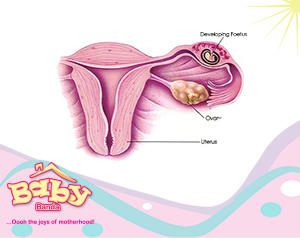Ectopic pregnancies occur when the ovum is fertilized by the sperm but implants outside the uterus in the fallopian tubes, cervix, ovary, or abdominal cavity. Most ectopic pregnancies occur in the fallopian tubes and are caused by a variety of factors that would prevent or slow the fertilized ovum’s journey to the lining of the uterus.
Signs and Symptoms
Signs and symptoms of an ectopic pregnancy may include:
• Vaginal bleeding
• Lack of menstruation (amenorrhea)
• Abdominal and pelvic pain
• Mild cramping
Your doctor will order an ultrasound and carry out laboratory testing to diagnose an ectopic pregnancy. The outcome of ectopic pregnancy depends on the location of implantation. The ovum may naturally be reabsorbed into the body, or the structure supporting the ovum may rupture. If the implantation site is a fallopian tube, the tube may rupture and cause internal haemorrhaging and shock, which is a life-threatening event for the mother.
Treatment
If an ectopic pregnancy is confirmed, the site of the implanted embryo will determine the course of treatment.
• If the tube is unruptured, the doctor may prescribe medication if the ectopic pregnancy is less than 3.5 cm, the fetus is not living, and you are stable. This is usually done on an outpatient basis.
• If the fallopian tube is ruptured as a result of the ectopic pregnancy, a surgical procedure called a linear salpingostomy is performed to protect the tube. A linear salpingostomy requires a small linear incision in the tube to remove the products of conception. The tube is then allowed to heal without suturing (stitches) to prevent significant scarring. Significant scarring in the fallopian tube could potentially affect your ability to have a successful pregnancy in the future.
Click here to read more on Pregnancy complications.













